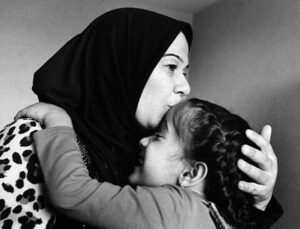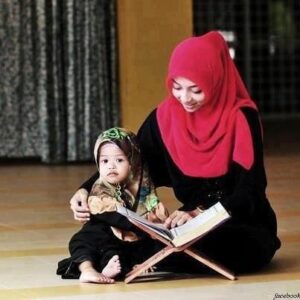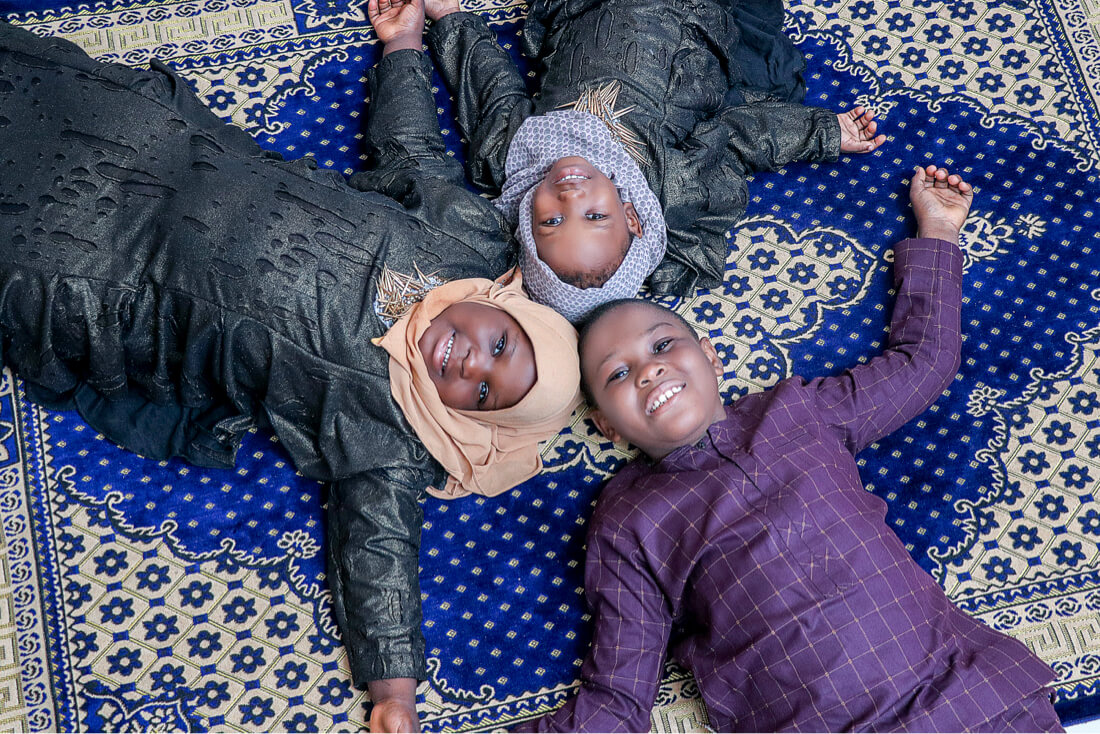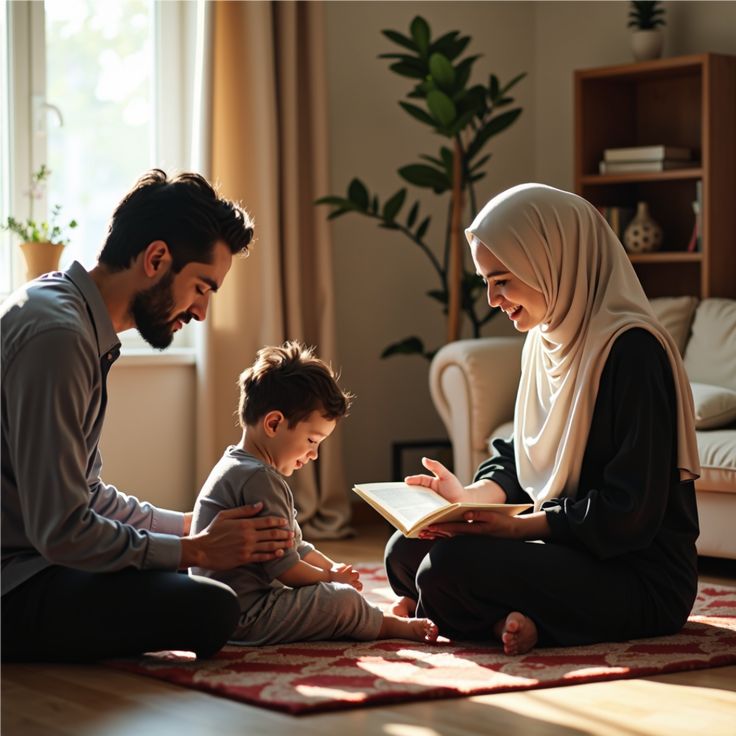In a Hadith, Anas bn Malik reported: The Messenger of Allah, peace and blessings be upon him, said; “The supplications of three are not turned back: the supplication of a parent, the supplication of a fasting person, and the supplication of a traveler.”(Al-Sunan al-Kubra lil-Bayhaqi, 6392)
Allah has made children trusts (Amaanah) upon parents. The way in which they are trained shall be accounted for on the Last Day, hence He has preserved for parents who train their children in the best of manners, both spiritually and morally, the best of rewards.
In a Hadith narrated by Abdullah bn Umar, he said that the Prophet of Allah said; “Indeed, each of you is a shepherd and each of you will be questioned regarding his flock. The commander who is in authority over people is responsible and he will be questioned regarding his responsibility. The man is responsible over the inhabitants of his house and he is the one who will be questioned about them. The wife is responsible in her husband’s house and she will be questioned about it. The servant is responsible regarding his master’s property, and he will be questioned about it. Indeed, each of you is a shepherd and each of you will be questioned about his flock” (Bukhari and Muslim)
The best gift from Allah is children and the best we can give them is proper upbringing. As parents, we would all agree that parenting can be very confusing at times since children do not come with a manual for training them. However, Islam has principles to help us bring up our children in the best manner. Prophet Muhammad (SAW) said; “Play with them for the first seven years (of their lives), then teach them for the next seven years then advise them for the next seven years (after that)”Hence, the principles of positive parenting in Islam are of three stages.
The first seven years This is the earliest stage of children’s lives and therefore, a stage when they love to play with their parents, siblings and people around them. It’s a foundation stage. It is a time when children imitate their parents more than anyone. Here, children are most vulnerable. If you notice any undesirable behavior in your child at this stage, it is probably gotten from the caregiver, their peers or you the parent. In recent times, many people would often say that children are too young to be taught some values of Islam at this stage. Nay! This is erroneous. Children at this stage do whatever they see from their parents, teachers or even the internet. Hence, whatever you expose your child is very Important. And through enrolling them in Madrasah, observing Solah in the house, fasting, making supplications and invocations to Allah, and lots of other good deeds, you get to set a good example for your children. This brings about the desire to perform and exercise those acts by the time they get to the stage when it is compulsory upon them. Next seven years (7-14)
Once children reach this stage, they are ready for logical reasoning and Islamic ethics, they should therefore be taught about their Deen. A child who is brought up in a home where the tenets of Islam are being upheld such as observing Solat, will experience little or no difficulty praying at this stage. This is the time when they are ready to implement anything you show and tell them. It is a stage to shape their behavior, to tell what is right and what is wrong, to set boundaries and of course, being a good example is the best way to show this.
The Prophet (SAW) said: “Teach your children swimming, archery and horse riding” so it is necessary to teach them sports too especially at this stage. It is a stage of energy.
It is a stage they are always very curious to know anything and everything happening in their environment. Parents need a lot of patience to correct or answer their children’s questions with love. Every parent should grant their children listening ears at this stage and seek to understand them.
As parent, set rules for everyone in the family (including yourself!) and take time to explain the reason they must obey them.
The final seven years (14-21)
Once a child attains puberty, they want to achieve independence. They want to choose what to do and what not to do, they tend to implement themselves whatever they have known without being forced. They want to make certain decision themselves. Their personality is developed at this stage.
Many parents find this stage more challenging than the other two because they do not understand that what their children need at this stage is advise.
During these critical years, parents need to be their friend and allow them freedom to choose for themselves what they want and what they do not.
………………………….TO BE CONTINUED IN OUR NEXT BLOGPOST.
Thanks for reading; Written by Zainab Awobajo; (Zainoptimisitic ), Admin Guided Hearts Madrasah
Next seven years (7-14)
Once children reach this stage, they are ready for logical reasoning and Islamic ethics, they should therefore be taught about their Deen. A child who is brought up in a home where the tenets of Islam are being upheld such as observing Solat, will experience little or no difficulty praying at this stage. This is the time when they are ready to implement anything you show and tell them. It is a stage to shape their behavior, to tell what is right and what is wrong, to set boundaries and of course, being a good example is the best way to show this.
The Prophet (SAW) said: “Teach your children swimming, archery and horse riding” so it is necessary to teach them sports too especially at this stage. It is a stage of energy.
It is a stage they are always very curious to know anything and everything happening in their environment. Parents need a lot of patience to correct or answer their children’s questions with love. Every parent should grant their children listening ears at this stage and seek to understand them.
As parent, set rules for everyone in the family (including yourself!) and take time to explain the reason they must obey them.
The final seven years (14-21)
Once a child attains puberty, they want to achieve independence. They want to choose what to do and what not to do, they tend to implement themselves whatever they have known without being forced. They want to make certain decision themselves. Their personality is developed at this stage.
Many parents find this stage more challenging than the other two because they do not understand that what their children need at this stage is advise.
During these critical years, parents need to be their friend and allow them freedom to choose for themselves what they want and what they do not.
………………………….TO BE CONTINUED IN OUR NEXT BLOGPOST.
Thanks for reading; Written by Zainab Awobajo; (Zainoptimisitic ), Admin Guided Hearts Madrasah[learn_press_profile]






0 Comments